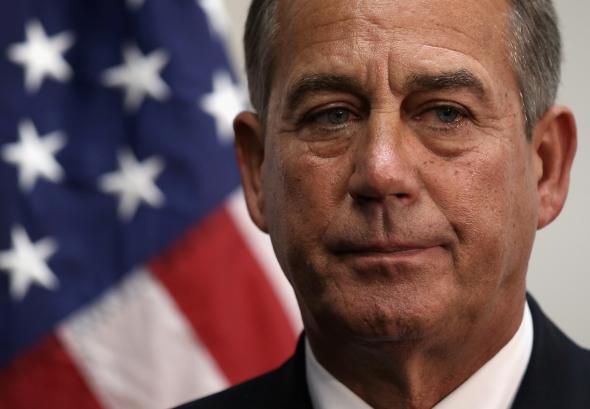Good news: Congressional Republicans have stumbled onto a plan that appears likely to prevent the Department of Homeland Security’s funding from expiring at midnight. Hooray! Bad news: That plan all but guarantees Congress will find itself right back in the middle of this same stalemate next month. Oh.
Friday could still prove to be an unpredictable one on Capitol Hill, but the most likely scenario, according to the New York Times and the other Beltway watchers, is that a day of vote wrangling in both chambers will end with Congress signing off on a short-term funding bill that does not include language that would block the high-profile immigration reforms President Obama unveiled last fall. That bill, however, would keep DHS funded only through March 19, meaning it’s merely a can-kicking measure and not a solution to the stalemate that has slowly evolved from a run-of-the-mill partisan fight into an intraparty squabble that has put House Republicans at odds with their Senate colleagues.
Senate Republicans are pressing forward with their original plan B, which involves standalone votes on one bill that would fund DHS through the end of the fiscal year and on a second that would block Obama’s immigration reforms. House Republicans have no interest in that plan, however, and appear steadfast in their desire to tie the department’s long-term funding directly to reform-blocking legislation. As a result, the Senate’s no-strings funding bill is believed to be DOA in the lower chamber.
Instead, House Republicans are pressing forward on their three-week funding bill, which would spare them the political damage of cutting funding for a federal agency that includes the Secret Service, TSA, FEMA, and Coast Guard, while still allowing them to fight another day. There was some concern that House Speaker John Boehner would have trouble finding enough conservative votes to pass that bill, but any remaining drama largely ended Friday morning when the proposal cleared an early test vote, 240–183.
Senate Republicans would prefer to fund the agency for the full fiscal year, but without any alternative they are expected to ultimately take what they can get and call it a week. Regardless, the intraparty fight over how to proceed is further exposing the ideological and tactical gaps between the conservative hardliners that make up the House GOP’s rank-and-file and the more moderate members at the heart of the Senate’s Republican majority. That rift will likely only grow over the next three weeks.
